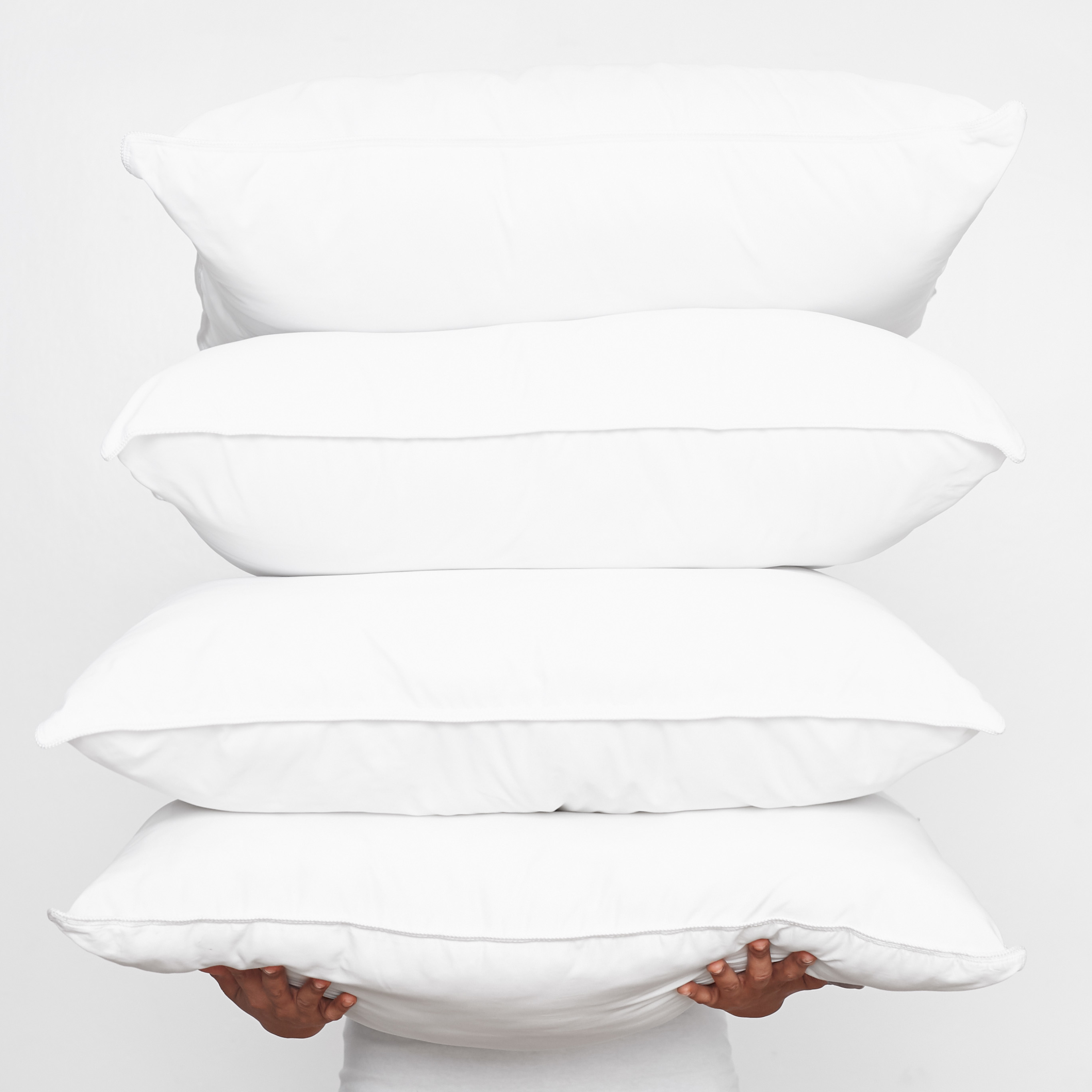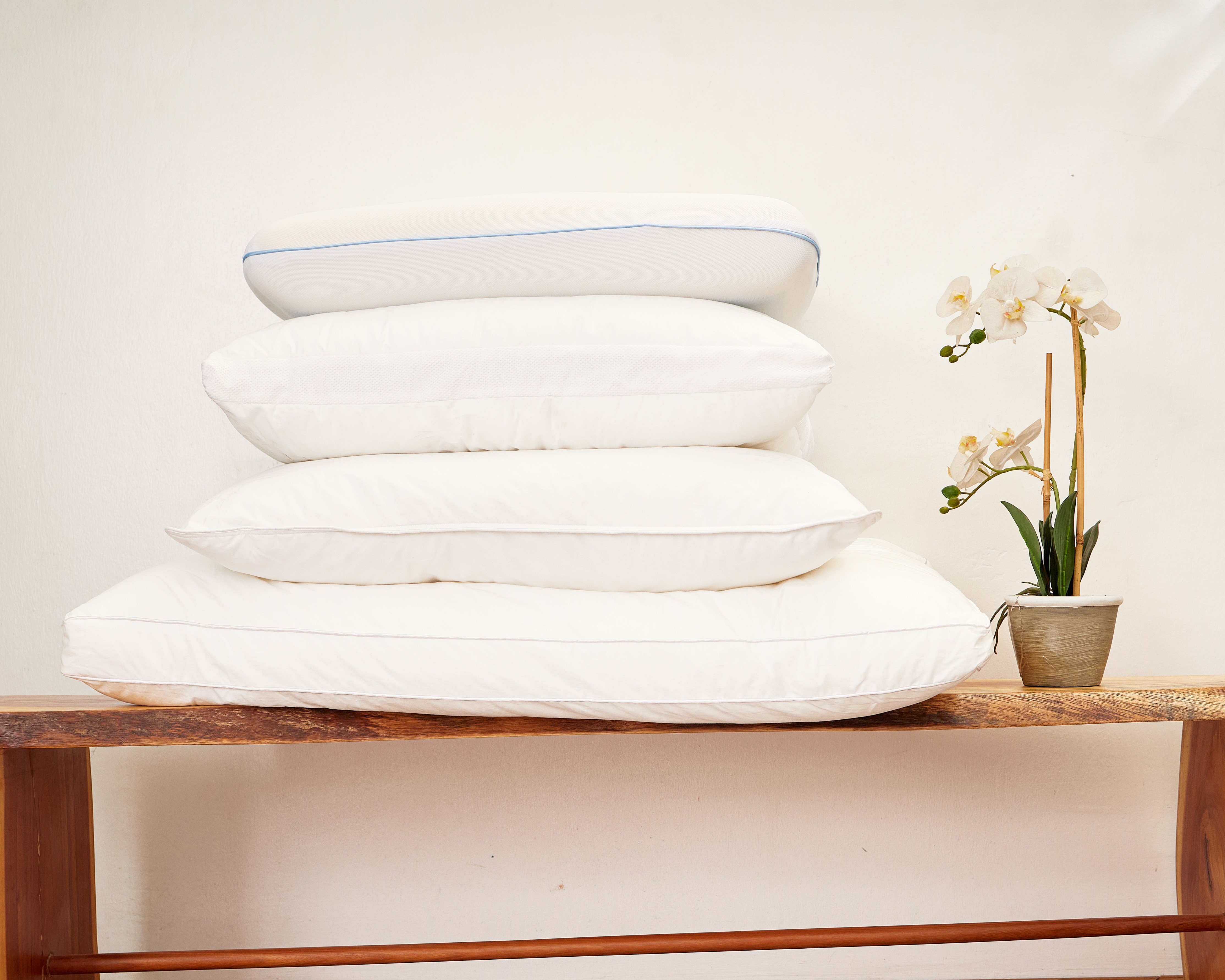Using the right pillow can greatly improve your quality of sleep because it helps your sleep posture. Do you ever wake up in the morning and say, “I must have slept on my neck,” while you try to relieve the tension in your neck? We’ve been there, too.
A good posture is key to sound sleep, night after night, and to waking up without pain and stiffness. The main product that helps to support a healthy sleep posture in addition to a good mattress is your pillow. What does that posture look like? The full body in alignment - from the knees and hips, through the spine to the chest and shoulders, head and neck.
If your neck and shoulders aren't properly supported or propped at an angle that can cause twisting, craning, or crunching, you will suffer strain and discomfort in your neck and shoulders, back, and ultimately not sleep well.
Selecting The Perfect Pillow For You
Selecting a pillow is a very individual process. When it comes to picking the right pillow, there really is no one pillow-size, shape, or material that fits all. But at the end of the day, your pillow’s most important job is to support you in your go-to sleeping position, all night long.
Here are 3 elements to consider;
- The Fill Material:
What your pillow is filled with can make a big difference, especially if you have allergies or are sensitive to certain materials.
If real feathers aren't an option for you, consider down alternatives. Most polyurethane or polyester fiber pillows are hypoallergenic and shouldn't irritate sensitive sleepers. The same goes for some buckwheat hull and memory-foam models. Be sure to check the materials and remember that each material filler feels different.
Try it out in the store to get an idea of how soft, firm, lumpy or solid the pillow feels.
2.The Size:
For most people, a standard-size pillow is adequate. Longer pillows like the king size pillows are also great if you move around a lot as the length will ensure your head always rests on the pillow even when you move around. The thickness or thinness of your pillow should enable you to sleep with your head, neck, and shoulders aligned with your spine, as well as provide you comfort.
Make sure the pillowcase fits the pillow properly. Don’t stuff a big pillow into an undersized cover, or let a standard-size pillow swim in an extra-large pillowcase. We have a tutorial about how to fit an oversized pillowcase.
Pillows are also made in specialty shapes, to provide additional support and stability for your head and neck. Some of these can be useful: cervical and contour pillows may help with neck and back pain, and contoured body pillows can provide support, stability, and relief for pressure points along the body.
- Your Sleep Needs
This is one of the most vital components to keep in mind before stepping out to buy a pillow. Because the way you sleep should determine the loft, feel or size of your pillow. Everyone sleeps differently, therefore different positions require different types of support.
Sleep Pillows for Side sleepers: The best pillows for side sleepers is either a memory foam or an orthopedic pillow. This is because those who sleep on their side can damage their spine’s natural alignment if their head is positioned either too high or too low. Orthopedic and memory foam pillows are designed to cushion vulnerable pressure points on the head and ensure the neck remains in the optimum position.
Sleep Pillows for Stomach Sleepers: For those who sleep on their stomach, the best types of pillows are the ones that lie on the softer side of the scale, including feather pillows like goose down pillows and pillows with comfort grade from soft to soft-medium. Unlike side sleepers, it’s recommended that stomach sleepers stick to pillows without much weight, as raising your head too high risks arching the spine backwards, causing discomfort.
Sleep Pillow For Back Sleepers: If you sleep on your back, the best pillow recommended for you is one with medium comfort grade, this will help provide adequate support to your head without pushing it too far forward. Hollowfibre like our down alternative pillows and wool pillows are popular options for back sleepers as they provide a bouncy surface that isn’t too soft.
What is the Appropriate Time To Replace Your Pillow?
Replacing your pillows regularly not only prevents allergen build-up, but it also enhances your sleep quality. According to the National Sleep Foundation, you should replace your pillow every 18 months or so.
To determine if it's really time to get a new pillow, test it by folding it in half and seeing if it springs back to flat. If it doesn't, it's time to find a new place to rest your head.
While there are dozens of factors affecting how well you sleep, having a pillow that supports your preferences and sleep style goes a long way. With the right pillow and maybe even a smart display to sense your sleep, you'll be off to dreamland in no time. You can check our pillow menu to help you make the right choice.








thanks for this useful information
Leave a comment